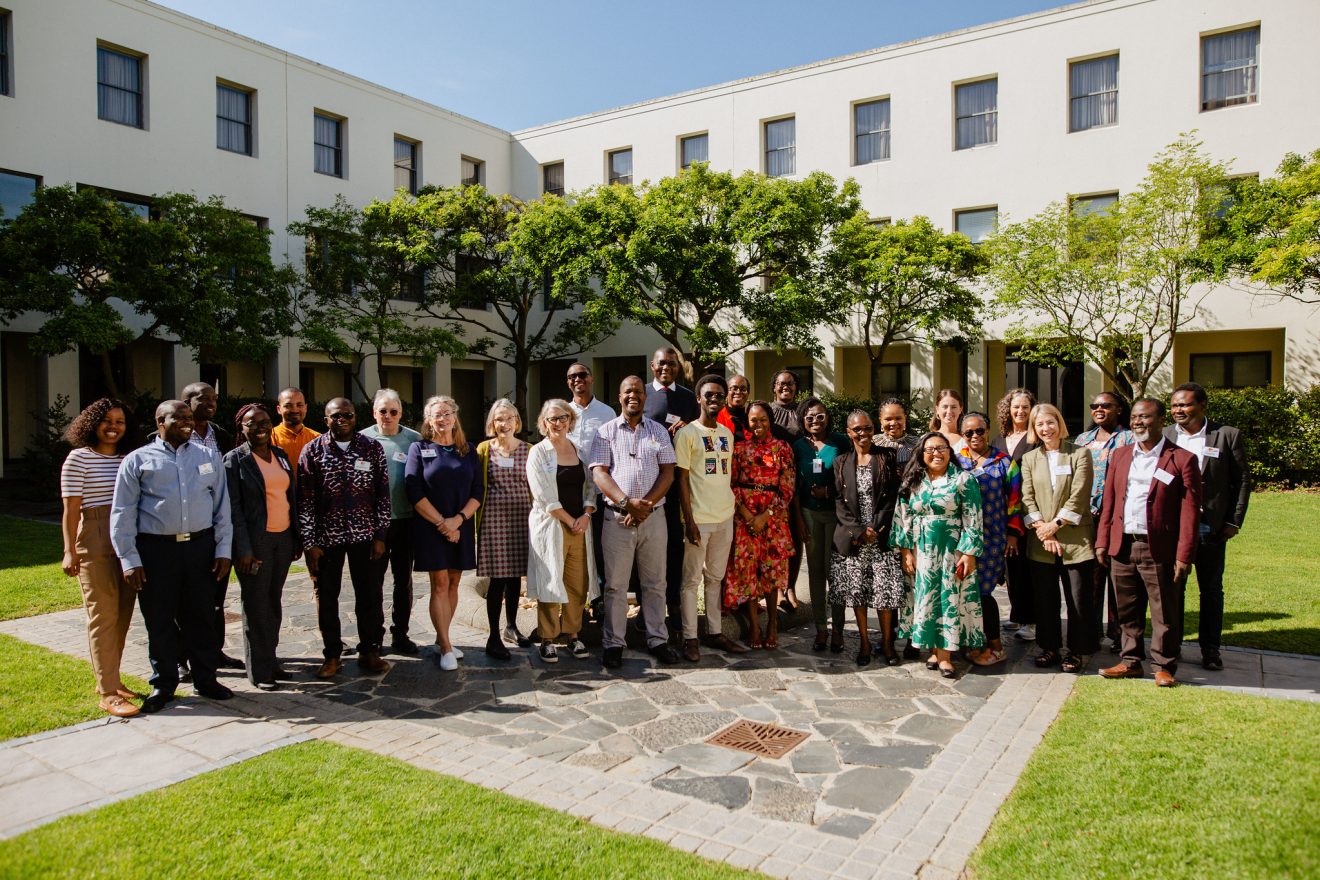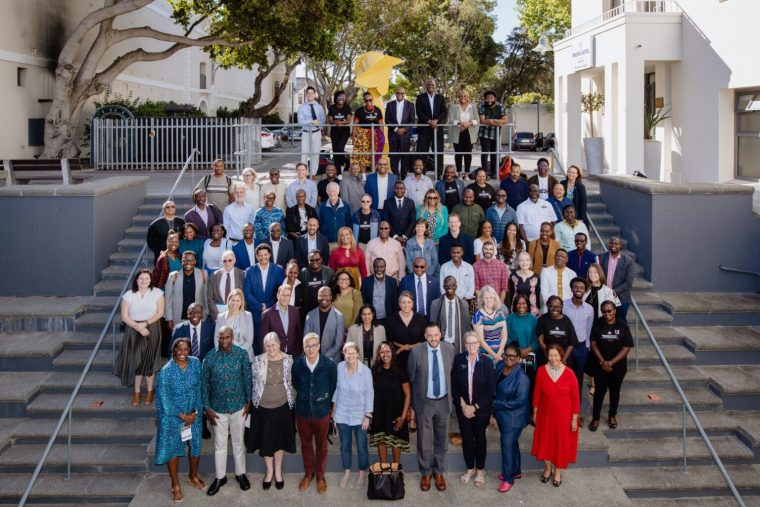Call for Expressions of Interest: Africa Health Collaborative Research Fund 2025
Deadline: February 19, 2025 (12PM GMT)
Open to Africa Health Collaborative partners only

Overview of the call
Member institutions of the Africa Health Collaborative (Health Collaborative) are contributing matching funds to support collaborative bilateral and multilateral research initiatives through a joint call for proposals.
Bilateral projects are eligible to receive up to $22,000 USD – with each institution awarding up to $11,000 USD to investigators at their home institution. (Multilateral proposals will be scaled up to $11,000 USD per institution). Joint funding will be provided to support up to 9 proposals for a funding period of 18 months.
The key aim of the Health Collaborative Research Fund 2025 (the Fund) is to encourage and provide initial support for the development/expansion of high-quality research activities for Early Career Researchers (ECR) enabling principal investigators to subsequently apply for funding to support the next phase of their joint research that will result in greater impact.
The theme for this year’s grant is Health Systems Strengthening in Primary Health Care (Including public health, community health, and related areas) in Sub-Saharan Africa.
Only ECRs from the following Health Collaborative institutions may apply: “Addis Ababa University, African Institute for Mathematical Sciences, African Leadership University, Amref International University, Ashesi University, Kwame Nkrumah University of Science and Technology, Moi University, University of Cape Town, University of Toronto”

About the Africa Health Collaborative
The Africa Health Collaborative (Health Collaborative) is a multistakeholder partnership dedicated to preparing diverse young people for the meaningful work of transforming health and well-being in Africa, through contextually appropriate and sustainable primary healthcare systems.
The Health Collaborative strategically leverages higher education institutions as hubs of knowledge exchange, community engagement, and cross-sector partnerships for innovation and impact.
A cornerstone of the Health Collaborative’s work is its focus on translational research that delivers tangible benefits to communities, enhances research capacity, fosters collaborations, and propels the advancement of Africa’s health ecosystems.
Eligibility
All proposals must be led by an Early Career Researcher from a Health Collaborative member institution (See Appendix 1 for definition of ECR by each institution) and can be bilateral (2 ECRs between two Health Collaborative member partners) or multilateral (three ECRs between three or more member partners). Proposals must also include participation of masters, doctoral or post-doctoral trainees. Eligible applicants may only lead one application (Further application requirements for applicants at each institution can be found in Appendix 2).
If you do not have a co-applicant from a Health Collaborative member institution, your application will be shared publicly in a repository for you to identify potential co-applicant(s) to apply for the Fund.
External collaborators (including researchers from other universities internationally, or those working in non-academic contexts such as community organizations, government, NGOs) cannot lead an application but can be involved in the proposed activities, where the benefit of their involvement to the collaboration is justified in the proposal.
Scope, Value and Duration
Proposals may include targeted research support such as joint workshops, researcher exchanges, and the formation of research exchange groups between Health Collaborative member institutions.
Joint projects will commence from June 1, 2025 for a maximum of 18 months.
Bilateral projects are eligible to receive up to $22,000 USD – with each institution awarding up to $11,000 USD to investigators at their home institution. (Multilateral proposals will be scaled up to $11,000 USD per institution).
The funding provided is intended to support expenses including but not limited to costs of travel (ECRs, Post-Doctoral Fellows, research associates, graduate student researchers) between the institutions, and costs associated with research, workshops and meetings (Details of eligible and ineligible costs by institution are detailed in Appendix 3).
Evaluation Criteria
A joint peer review committee with representatives from all member institutions will assess each proposal according to its academic merit using the following criteria:
- Project design and rationale
- Collaborator complementarity
- Potential translational impact and demonstrability of impact
- Capacity for future collaboration/funding
- Relevance and value of research project to Africa Health Collaborative activities
How to Apply
Applying to this funding will take place in two stages:
1. Submission of Expressions of Interest
- Deadline: February 19, 2025
- EoI Results Announced: March 5, 2025
2. Invitation to submit full proposals (if approved)
- Grant Application Deadline: April 16, 2025
- Grant Results Announced: May 7, 2025
- Grant Start Date: June 1, 2025 for 18 months
Need Help?
Please email your queries to africasecretariat@utoronto.ca
Appendix 1: Definition of Early Career Researcher by institution
Addis Ababa University: Full time academic faculty with rank of assistant professor and below (not more than two years since appointment to the last rank).
African Institute for Mathematical Sciences: All researchers holding a doctorate degree and having at least two years left on their contract with AIMS.
African Leadership University: Five years of their first significant research-related appointment, pre/post post-master’s degree or equivalent milestone.
Amref International University: Either graduated with a PhD in the last three years or a PhD student with evidence of full registration for the course; a master’s degree holder with evidence of at least one publication in peer reviewed journals as a first author or second author.
Ashesi University: All full-time faculty
Kwame Nkrumah University of Science and Technology: Early career would include all PhDs, up to the level of assistant lecturer
Moi University: ECR are those with PhD attained within last 10 years and or without funded research
University of Cape Town: Information to be provided shortly
University of Toronto: 5 years from time of first research appointment
Appendix 2: Eligibility Requirements by Institution
Addis Ababa University: Proposal must address primary health care and health systems related issues in a multi-disciplinary and innovative approach, must include graduate trainees to participate in the proposed project.
African Institute for Mathematical Sciences: Proposals must have substantive mathematical components and must include one or more graduate student researchers.
African Leadership University: Individuals must demonstrate a strong focus on solving societal challenges through entrepreneurial innovative health research. Teams should include final year graduate or postgraduate researchers. Proposals must address challenges in one of the following 1) Public health, community health and related areas in Africa 2) Ethnographic approaches to understanding African Health systems 3) Indigenous practices in maternal health 4) Solutions grounded in entrepreneurial leadership and interdisciplinary innovation. All Proposals much include 1) Innovative approaches 2) Practical application and impact 3) Interdisciplinary methods such as predictive analytics/health systems modeling/financial sustainability analysis/behavioral insights and human-centered design/digital health innovations/community based-research/implementation science. Proposal must be scalable and sustainable.
Amref International University: Individuals must be self-driven, with proposed work that is innovative and has the potential to impact practice and policy in strengthening health systems for more robust primary healthcare (PHC) systems.
Ashesi University: Must include a graduate or undergraduate student.
Kwame Nkrumah University of Science and Technology: Must include graduate students, assistant lecturers, and lecturers in the first two years.
Moi University: Affiliation to Public Health or related health sciences.
University of Cape Town: Information to be provided shortly
University of Toronto: None
Appendix 3: Eligible/Non-eligible costs
| Eligible Costs | Ineligible costs |
| – Travel costs including flights, hotels and subsistence – Costs associated with organizing workshops/meetings (excluding RA/administrative staff) – Research costs, including consumables (up to a maximum of $1,500 USD) – Graduate Stipends/Scholarships | – Replacement research/teaching costs – Directly incurred staff e.g. Research Assistant – Directly allocated costs including applicants’ time – Indirect costs/estates costs – Equipment – Conference attendance |
Addis Ababa University:
Eligible: Travel costs including flights, hotels and subsistence, Costs associated with organizing workshops/meetings (excluding RA/administrative staff), Research costs, including consumables (up to a maximum of $1,500 USD), Modest support to graduate students, Conference attendance to present the output of the research, Publication related costs for the output of the research.
Not eligible: Replacement research/teaching costs. Directly incurred staff e.g. Research Assistant, Directly allocated costs including applicants’ time, Equipment
African Leadership University:
Eligible: Graduate research stipends in accordance with intern remuneration policy, External consultation fees related to data collection/analysis, Field visits for data collection, 1 conference, software licenses for data modeling, health analytics tools, prototyping materials not found in Fablab, Capacity-building sessions for students, stakeholder workshops to disseminate findings, institutional overhead (up to 10%), publishing fees for open-access journals and marketing materials.
Not Eligible: Salaries for African Leadership University staff/faculty already on payroll, international travel unrelated to research/excessive cash advance, high-cost laboratory equipment or devices, large-scale events not related to project, overhead exceeding allocated amount, entertainment, non-research-related marketing or excessive branding costs.
Amref International University: Funding is for costs related to development and approval of study instruments, data collection, personal costs related to the research such us travel, accommodation, out of pocket and meals as per the organizational policy; dissemination of study findings including publishing and presentation in conferences.
University of Toronto: Graduate stipends/scholarships not eligible

